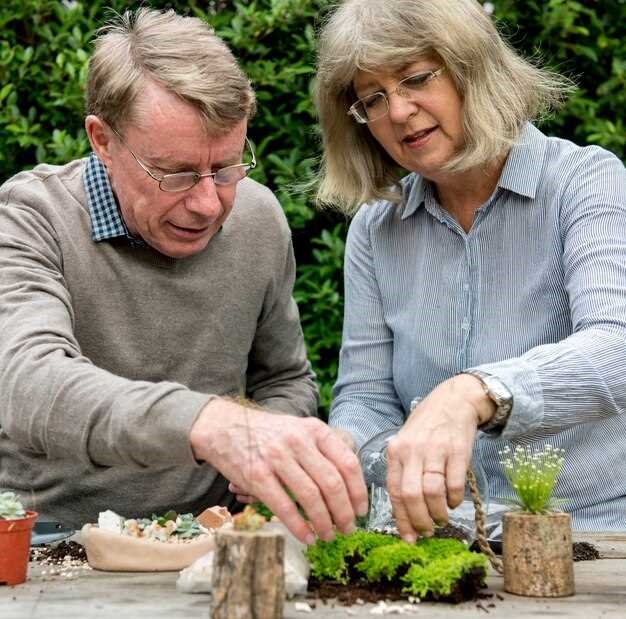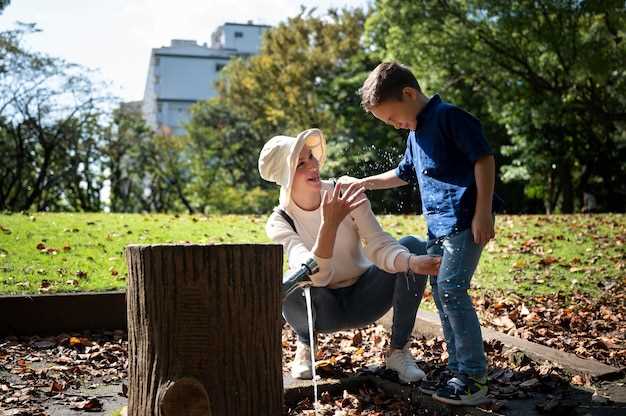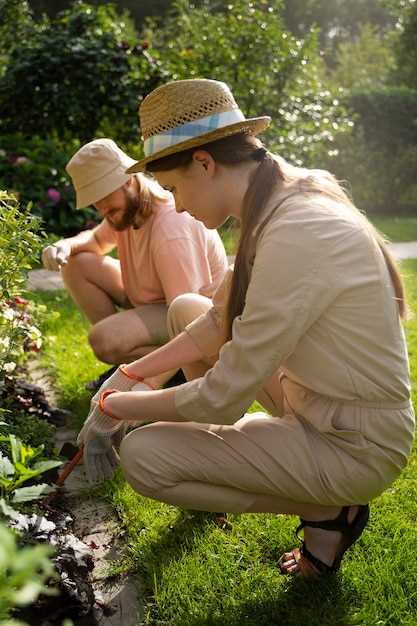Sustainable Practices at Old Down Estate – Preserving Nature for Future Generations


As we strive to create a better world for future generations, it is crucial to embrace sustainable practices that protect and nurture our natural surroundings. Nestled within the picturesque landscape, the Old Down Estate stands as a shining example of a historic property that has successfully implemented a range of environmentally-friendly initiatives. Through a careful balance of conservation, innovation, and community engagement, the estate has become a beacon of hope, showcasing how we can preserve the beauty of nature while still enjoying its bountiful offerings.
At the heart of the Old Down Estate’s commitment to sustainability lies a deep-rooted understanding of the interconnectedness between human actions and the environment. By adopting a holistic approach, the estate has managed to harmonize its operations with the delicate ecosystems that surround it. Through the use of cutting-edge technologies and innovative techniques, they have minimized their ecological footprint, ensuring that their practices do not compromise the integrity of the land or the diverse flora and fauna that call it home.
One of the key pillars of the estate’s sustainable initiatives is the promotion of biodiversity. Recognizing the importance of preserving and enhancing the natural habitats within its grounds, the Old Down Estate has implemented various measures to protect and nurture the local wildlife. From the creation of wildlife corridors to the installation of nesting boxes and bee-friendly gardens, every effort has been made to provide a safe haven for a wide range of species. By prioritizing biodiversity, the estate not only safeguards the delicate balance of its ecosystem but also contributes to the larger global effort of conserving biodiversity for future generations.
Conserving Biodiversity: Protecting the Rich Ecosystem
Preserving the diverse range of life forms and maintaining the intricate web of interactions within the natural environment is of utmost importance at Old Down Estate. By safeguarding the wealth of species and habitats, we ensure the long-term sustainability and resilience of the ecosystem for future generations.
At Old Down Estate, we recognize the significance of biodiversity in maintaining the health and balance of the ecosystem. Our conservation efforts focus on protecting the variety of living organisms, from plants and animals to microorganisms, that coexist within our estate. By nurturing this rich tapestry of life, we contribute to the overall stability and functionality of the ecosystem.
- Implementing habitat restoration projects to provide suitable conditions for native species to thrive.
- Establishing protected areas and nature reserves to safeguard vulnerable and endangered species.
- Encouraging the use of sustainable farming practices that minimize the negative impact on biodiversity.
- Promoting the importance of biodiversity conservation through educational programs and community engagement.
- Collaborating with local conservation organizations to exchange knowledge and resources for effective biodiversity management.
By conserving biodiversity, we not only protect individual species but also ensure the functionality of the ecosystem as a whole. The interdependence of different organisms and their roles in maintaining ecosystem services, such as pollination and nutrient cycling, highlight the importance of preserving the rich biodiversity found at Old Down Estate. Through our ongoing efforts, we strive to create a sustainable environment that can support diverse life forms for generations to come.
Organic Farming: Cultivating Food in Harmony with Nature

In this section, we will explore the concept of organic farming and its significance in cultivating food in harmony with the natural environment. Organic farming is an agricultural practice that emphasizes the use of natural methods and materials to grow crops and raise livestock. It aims to minimize the use of synthetic chemicals, genetically modified organisms (GMOs), and other artificial inputs that can harm the ecosystem and human health.
The Principles of Organic Farming

Organic farming is guided by several principles that promote sustainable and environmentally friendly practices. One of the key principles is soil health, recognizing that healthy soil is the foundation for nutritious and resilient crops. Organic farmers prioritize soil fertility through the use of compost, crop rotation, and cover crops, which enhance the soil’s structure and nutrient content.
Another principle is biodiversity conservation. Organic farmers strive to create a diverse ecosystem on their farms, encouraging the presence of beneficial insects, birds, and other wildlife. This helps control pests naturally and promotes pollination, leading to healthier crops. Additionally, organic farmers avoid using synthetic pesticides and focus on integrated pest management techniques to maintain a balanced ecosystem.
The Benefits of Organic Farming
Organic farming offers numerous benefits for both the environment and human well-being. By avoiding the use of synthetic chemicals, organic farming reduces the pollution of soil, water, and air. It also helps preserve biodiversity by providing habitats for various species and promoting ecological balance.
From a health perspective, organic food is free from residues of synthetic pesticides and fertilizers, making it a safer and healthier choice for consumers. Organic farming practices also prioritize animal welfare, ensuring that livestock are raised in humane conditions without the use of growth hormones or antibiotics.
Furthermore, organic farming supports local economies and communities by promoting sustainable agriculture and preserving traditional farming practices. It encourages small-scale farming and fosters a closer connection between farmers and consumers, promoting transparency and trust in the food system.
In conclusion, organic farming is a holistic approach to food production that respects and works in harmony with nature. By prioritizing soil health, biodiversity conservation, and sustainable practices, organic farmers contribute to a more sustainable and resilient agricultural system, ensuring a healthier future for generations to come.
Renewable Energy: Powering the Estate with Clean Sources
In this section, we will explore the innovative methods employed at the Old Down Estate to generate electricity using sustainable and environmentally friendly sources. By harnessing the power of renewable energy, the estate is able to reduce its carbon footprint and contribute to a greener future.
One of the key aspects of the estate’s commitment to renewable energy is the utilization of solar power. Through the installation of solar panels, the estate is able to harness the energy from the sun and convert it into electricity. This clean and abundant source of energy not only reduces the estate’s reliance on traditional fossil fuels but also helps to mitigate the harmful effects of greenhouse gas emissions.
Additionally, the estate has invested in wind turbines to further diversify its renewable energy portfolio. These towering structures harness the power of the wind to generate electricity, providing a consistent and reliable source of clean energy. By taking advantage of the natural resources available on the estate, the reliance on non-renewable energy sources is significantly reduced.
Furthermore, the estate has implemented a biomass energy system, utilizing organic materials such as wood chips and agricultural waste to produce heat and electricity. This sustainable practice not only reduces waste but also provides a renewable source of energy that is carbon-neutral, as the carbon dioxide released during combustion is offset by the carbon absorbed by the plants during their growth.
By embracing renewable energy sources, the Old Down Estate is leading the way in sustainable practices. Through the use of solar power, wind turbines, and biomass energy, the estate is able to power its operations while minimizing its impact on the environment. This commitment to clean energy not only benefits the present but also ensures a greener and more sustainable future for generations to come.
Water Conservation: Efficient Usage for a Sustainable Future
Water conservation plays a crucial role in ensuring a sustainable future for our planet. By implementing efficient usage practices, we can preserve this vital resource for generations to come. This section explores the importance of water conservation and highlights the strategies employed at Old Down Estate to minimize water wastage and promote responsible water management.
The Value of Water
Water is a precious and finite resource that sustains all forms of life on Earth. Its availability and quality directly impact ecosystems, agriculture, and human well-being. Recognizing the value of water is essential in fostering a mindset of conservation and responsible usage. At Old Down Estate, we understand that every drop counts, and we strive to maximize the efficiency of our water usage to minimize waste and protect this invaluable resource.
Efficient Water Usage Strategies
Old Down Estate employs various strategies to ensure efficient water usage throughout its operations. These include:
- Smart Irrigation Systems: By utilizing advanced irrigation technologies, such as soil moisture sensors and weather-based controllers, we optimize watering schedules and minimize water loss due to overwatering or evaporation.
- Water Recycling: We have implemented water recycling systems that capture and treat wastewater for reuse in irrigation and other non-potable applications. This reduces the demand for freshwater and minimizes the strain on local water sources.
- Xeriscaping: Our landscaping practices prioritize the use of native and drought-resistant plants, reducing the need for excessive watering. This not only conserves water but also promotes biodiversity and enhances the natural beauty of the estate.
- Education and Awareness: We actively engage our staff, visitors, and local community in water conservation initiatives. Through educational programs and awareness campaigns, we aim to foster a culture of responsible water usage and empower individuals to make a positive impact.
By implementing these and other water conservation strategies, Old Down Estate strives to be a leader in sustainable water management. We believe that by preserving and efficiently utilizing this precious resource, we can contribute to a greener and more sustainable future for all.
Eco-friendly Accommodation: Providing Green Hospitality
Creating an environmentally conscious and sustainable experience for guests is at the heart of our eco-friendly accommodation. We strive to offer a green hospitality experience that not only provides comfort and luxury but also minimizes our impact on the environment. By incorporating eco-friendly practices and utilizing sustainable resources, we aim to contribute to the preservation of our natural surroundings for future generations.
At our eco-friendly accommodation, we prioritize the use of renewable energy sources such as solar power and wind energy. By harnessing these sustainable resources, we reduce our reliance on non-renewable energy and decrease our carbon footprint. Additionally, we have implemented energy-efficient lighting systems and appliances throughout our premises to further minimize energy consumption.
Water conservation is another key aspect of our green hospitality practices. We have implemented water-saving measures such as low-flow showerheads and faucets, as well as dual-flush toilets. These initiatives not only reduce water consumption but also promote awareness among our guests about the importance of responsible water usage.
When it comes to waste management, we have implemented a comprehensive recycling program to ensure that recyclable materials are properly sorted and disposed of. We also encourage our guests to participate in our recycling efforts by providing designated recycling bins in each accommodation unit. Furthermore, we strive to minimize single-use plastics by offering reusable water bottles and toiletry dispensers in our rooms.
Our commitment to eco-friendly practices extends to the design and construction of our accommodation units. We have utilized sustainable building materials and incorporated energy-efficient design principles to ensure that our structures have minimal impact on the environment. Additionally, we have incorporated green spaces and native plantings around our premises to enhance biodiversity and provide a natural habitat for local wildlife.
By choosing to stay at our eco-friendly accommodation, guests can enjoy a luxurious and comfortable experience while knowing that their stay is contributing to the preservation of our natural resources. We believe that by providing green hospitality, we can inspire and educate our guests about the importance of sustainable living and encourage them to adopt eco-friendly practices in their own lives.
Education and Awareness: Inspiring the Next Generation of Conservationists
In this section, we will explore the importance of education and awareness in fostering a sense of responsibility towards the environment and inspiring the next generation to become passionate conservationists. By equipping young minds with knowledge and understanding, we can empower them to make informed decisions and take action to protect our natural resources.
One of the key aspects of education is creating awareness about the delicate balance between human activities and the environment. By highlighting the interconnectedness of ecosystems and the impact of our actions, we can instill a sense of responsibility and encourage sustainable practices. Through educational programs, workshops, and interactive sessions, we can engage young individuals in meaningful discussions and activities that promote environmental consciousness.
Furthermore, education plays a crucial role in nurturing a love for nature and wildlife. By introducing children to the wonders of the natural world through field trips, nature walks, and hands-on experiences, we can spark their curiosity and ignite a passion for conservation. By fostering a deep appreciation for the beauty and diversity of our planet, we can inspire the next generation to become advocates for its preservation.
Education and awareness also involve teaching practical skills that enable individuals to actively contribute to conservation efforts. By providing opportunities for learning about sustainable gardening, waste management, and renewable energy, we can empower young people to make sustainable choices in their daily lives. By equipping them with the tools and knowledge to make a positive impact, we can ensure a brighter and greener future for generations to come.
- Engaging young minds through interactive educational programs
- Creating awareness about the interconnectedness of ecosystems
- Nurturing a love for nature and wildlife through hands-on experiences
- Teaching practical skills for sustainable living
By investing in education and awareness initiatives, we can inspire the next generation to become passionate conservationists and ensure the long-term preservation of our natural resources. Together, we can create a sustainable future for all.
Leave a Comment